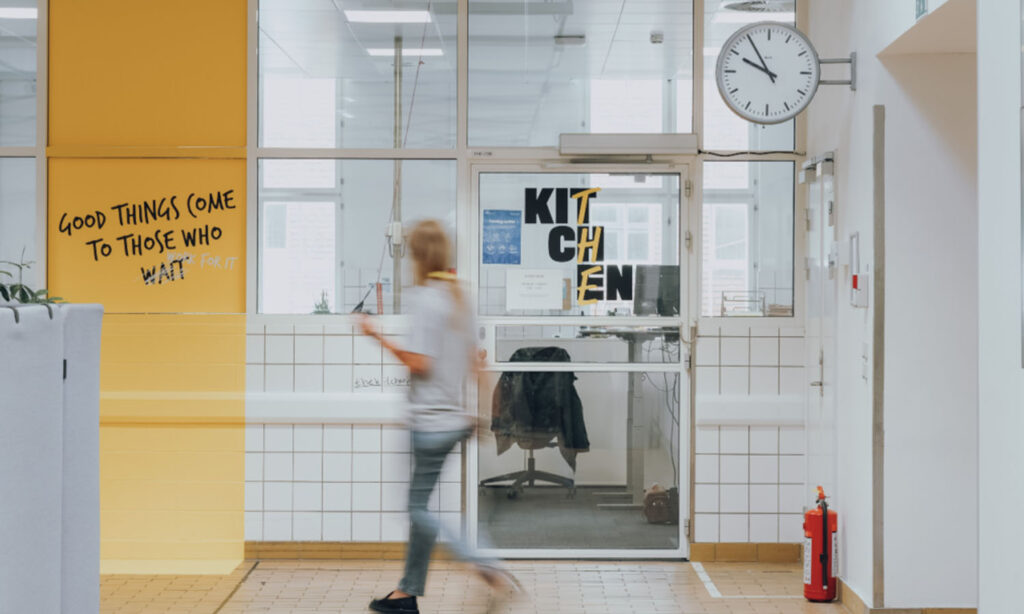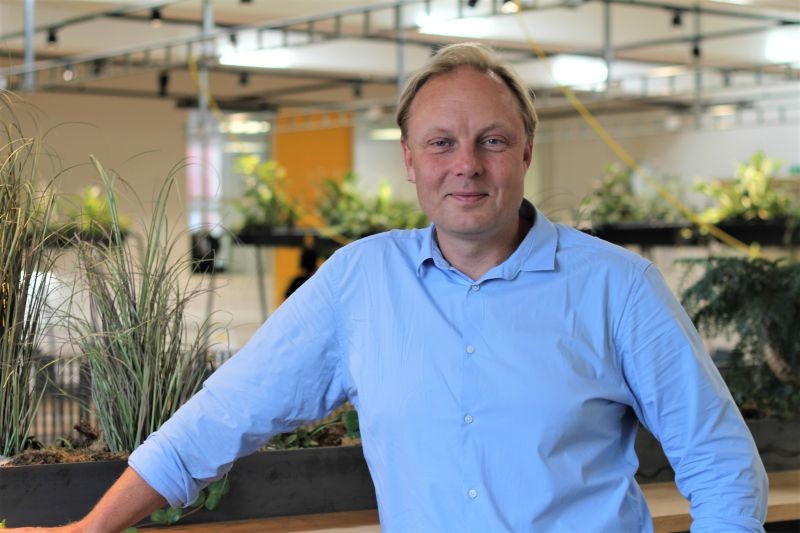New ideas are prepared for the market in The Kitchen
May 17, 2022
BY Nina Lyhne

This article is made in collaboration with TechSavvy Media for the magaszine Grow Aarhus 2022.
In a few years, the startup hub The Kitchen has become the main connector between Aarhus University and the startup ecosystem in Aarhus.
The Kitchen just opened the doors to its new startup hub at Aarhus University, before the first corona shutdown hit the country. But despite the difficult start, the incubator has become so popular that 170 startups run by students and researchers at Aarhus University is affiliated with The Kitchen just three years after its opening.
“It has become clear to the students that they can access a great framework for help if they have entrepreneurial dreams. The same applies to the employees – and here The Kitchen also shows a clear way to turn research into concrete solution on the market – allowing the research to help patients or the climate agenda in a very tangible way,” Jeppe Dørup Olesen, head of The Kitchen and former innovation attaché in Silicon Valley, explains.
The reason the old kitchen has been turned into a startup hub is to bridge the university with the business community. Not just by helping new startups with advisors and business development – but also through teaching and workshops in entrepreneurship at the university.

The brand new ideas
The Kitchen is first and foremost made for students and staff at Aarhus University who can use it to turn their ideas into a company. But at the same time, the new hub has also opened the university environment to the rest of the startup ecosystem in the city: Everyone is invited to use the facilities or participate in workshops.
“The whole idea was to build an environment that can support very early startups – people who typically only have an idea – so we can help more people get knowledge and technology out into the world,” Dørup Olesen says.
When the new ideas mature to the point where they have customers or investors, they move out of the kitchen and into another community. And a constant flow is necessary with the many ideas generated at the university: Every month, The Kitchen welcomes at least 10 new companies seeking help to prepare their idea for the market.
A mistake is not a failure
Although the startups in The Kitchen are all at a very early stage, they have collectively raised around DKK 40 million in the past year. At the same time, partnerships with corporates such as Grundfos and Kamstrup show the established business community’s interest in the new startup hub.
This does, however, not mean that the startups that do not become a commercial success are failures:
“We provide a unique opportunity to get the building blocks for entrepreneurship – but it does not have to lead to an entrepreneurial career. There’s going to be a lot of companies from The Kitchen that never take off, and that’s okay too. The whole idea is that everyone should be able to come inside and experience entrepreneurship, and we help them all as best we can,” Dørup Olesen says.



